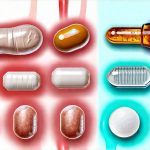Bladder symptoms can significantly impact quality of life, ranging from mild inconvenience to debilitating discomfort. Many individuals seek solutions beyond medication, exploring how lifestyle factors – particularly diet – might offer relief. Understanding the complex relationship between what we eat and bladder function is crucial. It’s not simply about eliminating certain foods; it’s about recognizing individual sensitivities, identifying potential triggers, and adopting a holistic approach that supports overall bladder health. Dietary adjustments aren’t always a cure-all, but they can often play a significant role in managing symptoms and improving well-being for those experiencing issues like urgency, frequency, incontinence, or painful bladder syndrome (interstitial cystitis).
The bladder is a remarkably resilient organ, but it’s also vulnerable to irritation. Certain foods and beverages are known to exacerbate bladder symptoms in susceptible individuals. This isn’t due to the bladder itself being directly affected by the food; rather, metabolic processes break down food into various compounds that can impact bladder lining sensitivity or increase inflammation. Furthermore, the nervous system plays a key role – what we consume can influence nerve signals related to bladder control and sensation. A personalized approach is essential because sensitivities vary greatly from person to person. What triggers symptoms in one individual may have no effect on another. This article will delve into how dietary strategies can be implemented to potentially manage these challenging symptoms, emphasizing the importance of careful observation and professional guidance. For more general health tips related to diet, consider exploring diet and bladder habits.
Dietary Triggers and Bladder Irritants
Many common foods and beverages are recognized bladder irritants for a significant portion of the population. These aren’t necessarily harmful in themselves, but they contain compounds that can exacerbate bladder sensitivity or increase inflammation within the urinary tract. Caffeine, for example, is a well-known diuretic, meaning it increases urine production, potentially leading to more frequent trips to the bathroom and worsening urgency. Similarly, alcohol acts as a diuretic and can also irritate the bladder lining. Highly acidic foods – like citrus fruits (oranges, lemons, grapefruit), tomatoes, and vinegar – are often cited as triggers because acidity can directly irritate the sensitive bladder tissues.
Artificial sweeteners are another frequently reported irritant. While marketed as healthier alternatives to sugar, some artificial sweeteners can cause bladder symptoms in certain individuals. The exact mechanism isn’t fully understood, but it’s thought that these compounds may disrupt the delicate balance within the urinary tract. Spicy foods, while enjoyable for many, can also contribute to bladder irritation due to capsaicin and other compounds that stimulate nerve endings. It’s important to note that identifying triggers is often a process of elimination diet – carefully removing suspected irritants from your diet one at a time and observing whether symptoms improve. To understand how food impacts the urethra specifically, review diet’s effect on urethral irritation.
The impact isn’t always immediate; it can take hours or even days for the effects of certain foods to become noticeable. Keeping a detailed food diary alongside symptom tracking can be incredibly helpful in identifying personal sensitivities. This diary should include everything consumed – including drinks, snacks, and condiments – as well as details about any bladder-related symptoms experienced (urgency, frequency, pain, etc.). This allows for a more accurate assessment of potential dietary triggers than simply relying on memory. Remember that hydration is also key; while limiting irritants, adequate water intake is essential for overall urinary tract health. You can learn more about the importance of fluids with neutral hydration options.
Understanding the Role of Hydration
Proper hydration isn’t about avoiding fluids, but rather finding the right balance. Ironically, restricting fluid intake can actually concentrate urine, making it more irritating to the bladder. The goal is to drink enough water to dilute urine without overwhelming the bladder. A general recommendation is 6-8 glasses of water per day, but individual needs vary based on activity level, climate, and overall health. Monitoring urine color can be a simple way to assess hydration levels – pale yellow indicates adequate hydration, while dark yellow suggests dehydration.
However, what you drink matters just as much as how much. Water should be the primary source of hydration. Limit or avoid diuretics like caffeine and alcohol, which can worsen bladder symptoms. Be mindful of sugary drinks, as they contribute to overall inflammation and may exacerbate urinary tract irritation. Herbal teas can be a soothing alternative for some, but it’s crucial to check with a healthcare professional about potential interactions with medications or existing health conditions. Some herbal ingredients might have diuretic effects. If you’re looking at natural remedies, consider natural bladder support tools.
Establishing a consistent hydration schedule can also be beneficial. Rather than drinking large amounts of fluid at once, spread out your intake throughout the day. Avoid drinking significant quantities of fluids close to bedtime to minimize nighttime awakenings for urination. Finally, pay attention to how different beverages affect your bladder and adjust accordingly. Some individuals may find that certain herbal teas are soothing, while others experience worsening symptoms.
The Impact of Food Sensitivities & Inflammation
Beyond common irritants, underlying food sensitivities can play a significant role in bladder health. These aren’t necessarily allergies (which involve an immediate immune response), but rather intolerances or sensitivities that cause inflammation within the body. Chronic inflammation is linked to many chronic conditions, including interstitial cystitis/bladder pain syndrome. Identifying and addressing these sensitivities can be a powerful step towards managing bladder symptoms.
Common food sensitivities include gluten, dairy, soy, corn, and eggs. These foods don’t always cause obvious digestive symptoms; instead, they may manifest as more subtle issues like fatigue, skin rashes, or – in this case – bladder irritation. An elimination diet is often the best way to identify these sensitivities. This involves removing suspected trigger foods for a period of time (typically 2-3 weeks) and then gradually reintroducing them one at a time while carefully monitoring symptoms.
Addressing inflammation through diet extends beyond eliminating sensitivities. Incorporating anti-inflammatory foods can help soothe the urinary tract and support overall bladder health. Foods rich in omega-3 fatty acids (salmon, flaxseeds, walnuts), antioxidants (berries, leafy greens, colorful vegetables), and fiber (whole grains, legumes) are all beneficial choices. Reducing processed foods, sugary snacks, and unhealthy fats is equally important, as these contribute to inflammation. Managing inflammation can also be assisted by anti-allergy diets.
Exploring the Gut-Bladder Connection
Emerging research highlights a strong connection between gut health and bladder function – often referred to as the gut-bladder axis. The gut microbiome (the community of bacteria living in our digestive tract) plays a crucial role in immune regulation and inflammation control. An imbalance in the gut microbiome – known as dysbiosis – can lead to increased intestinal permeability (“leaky gut”), allowing inflammatory molecules to enter the bloodstream and potentially exacerbate bladder symptoms.
Supporting a healthy gut microbiome is therefore an important aspect of managing bladder health. This involves consuming probiotic-rich foods (yogurt, kefir, sauerkraut) or considering a probiotic supplement (after consulting with a healthcare professional). Fiber intake is also crucial, as it serves as food for beneficial gut bacteria. Reducing sugar and processed foods can help prevent the overgrowth of harmful bacteria. Learning more about stress management to support your health overall may be helpful; consider easing bladder symptoms through stress reduction.
Furthermore, addressing any underlying digestive issues – such as irritable bowel syndrome (IBS) or small intestinal bacterial overgrowth (SIBO) – can indirectly improve bladder function. These conditions are often associated with inflammation and dysbiosis, which can contribute to bladder symptoms. A holistic approach that addresses both gut health and bladder health is often the most effective strategy for long-term management.





















